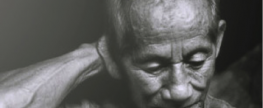
A study shows older adults aren’t getting the care they want at life’s end A new poll shows that almost one in four older Americans — approximately 25 million people — experience excessive or unwanted medical treatment. This is especially true in the last year and very last days of life. During their final 24 to 48 hours, many terminally ill patients go to the hospital and receive treatments that don’t improve quality of life, says Daniel Wilson, national and federal programs director for Compassion & Choices, a nonprofit end-of-life advocacy organization. In fact, a person’s last days in the hospital are often “more traumatic than peaceful,” he says. Why, when 70 percent of us say we want to die at home, are we so often dying in the hospital? Several factors are driving the trend. A main issue is cultural discomfort with death and dying. “In America, we avoid these conversations,” says Wilson. A Need to Start Talking A 2012 survey conducted by the California HealthCare Foundation found that 60 percent of respondents feel it is “extremely important” that their families not be burdened by tough decisions about their end of life care. Yet, 56 percent of those surveyed had not communicated their end-of-life wishes with their families. Anxiety about death also keeps people from talking openly with their doctors, leaving patients with incomplete or false information about many palliative care and end-of-life alternatives that would keep them out of the hospital in their last days. “This is your body, your health,” says Wilson. “You need to have the comfort level with your doctor.” If you don’t feel comfortable asking questions and having these types of conversations with your healthcare practitioner, he says, it might be time to...



